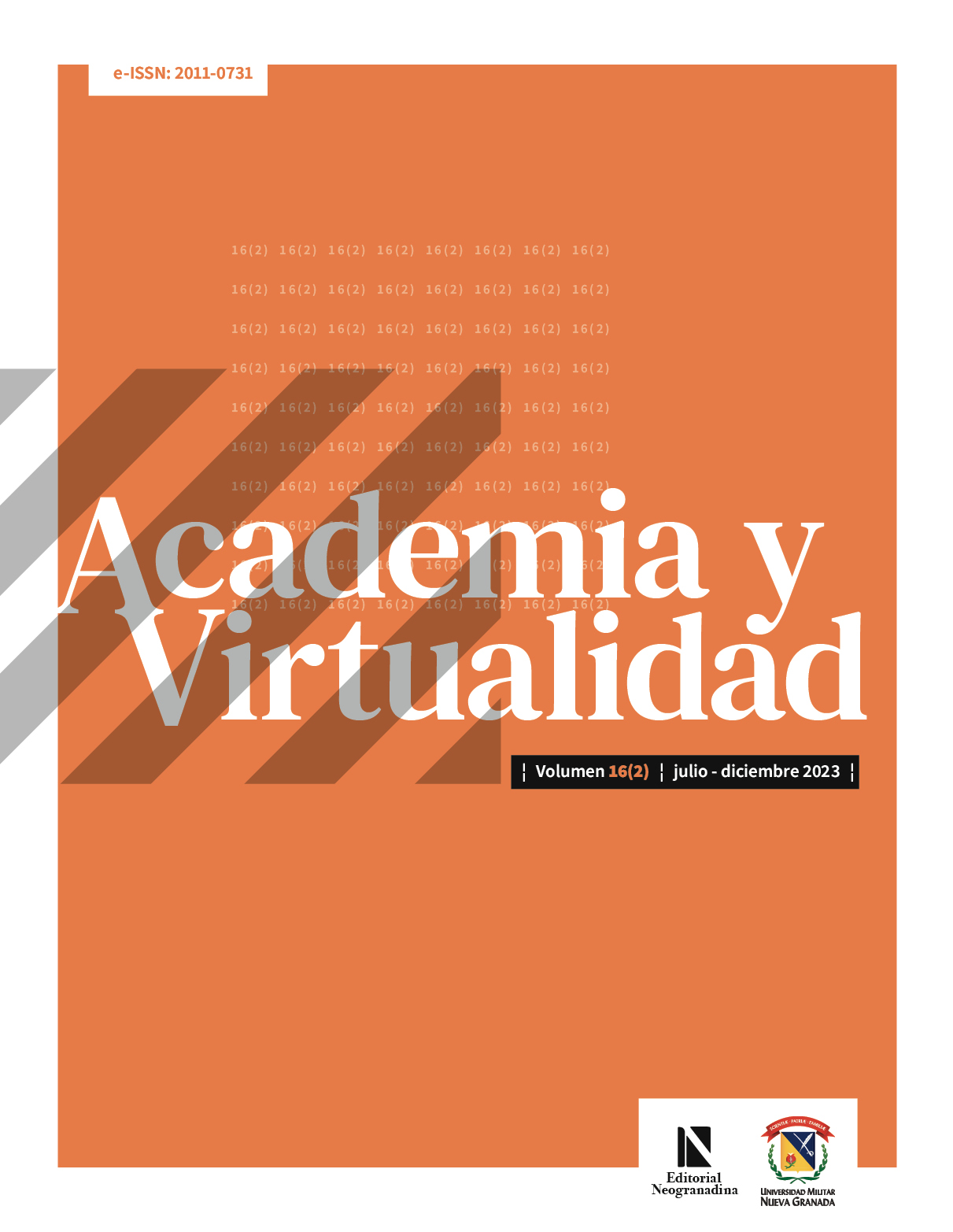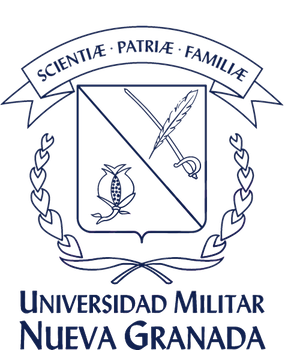The Effect of the Educational Game, Reading-Writing-Game and Reading-Writing-Application Methods on Students' Social Skills, Attitudes Towards Science Course and School
Resumen
Research in the literature predominantly focuses on the academic development of students. However, the affective characteristics of students and their ability to work in different ways impact their learning. Therefore, it is crucial to examine the effects of various teaching methods on the development of affective factors. This study aims to investigate the impact of educational game (eg), reading-writing-games (rwg), and reading-writing-application (rwa) methods on students’ attitudes towards science lesson, social skills, and attitudes towards school. A quasi-experimental design with pretest-posttest comparison groups was employed. The research involved 163 5th-grade students from middle school. Data collection utilized science course attitude scale, social skills scale, and attitude scale towards school. Dependent groups t-test and one-way anova were employed for the analysis. The results indicated that eg, rwg, and rwa methods are statistically significant enhancing students’ social skills, attitudes towards science courses, and attitudes towards school. eg, rwg, and rwa methods can be applied to improve the social skills and attitudes of students with low social skills and negative attitudes towards the course or school.
Descargas
Referencias bibliográficas
Açıkgöz, K. (1992). Cooperative learning theory research practice. Uğurel.
Akandere, M. (2012). Educational school games. Nobel.
Alghamdi, A. (2017). Impact of jigsaw on the achievement and attitudes of saudi arabian male high school science students (Publicaiton No. 10659846) [Doctoral dissertation, University of Akron]. ProQuest Dissertations Publishing.
Arıcı, B. (2017). Educational games impact on children of Turks living in Germany to learn Turkish success [Unpublished master thesis]. Atatürk University.
Arisoy, B., & Tarim, K. (2013). The effects of cooperative learning on students’ academic achievement, retention and social skill levels. Hacettepe University Journal of Education, 28(28-3), 1-14.
Avcı, F. (2015). Effects of instructional curriculum based on cooperative learning related to the unit of 'structure and properties of matter' on cognitive and affective domain variables (Unpublished doctoral dissertation). İstanbul University, Turkey.
Avci, M. (2018). 6th grade science course the effect of the cooperative learning model on the student success in the unit of "Systems in Our Body" [Unpublished master thesis] Fırat University.
Aymen Peker, E. (2018). 5 Evaluation of teaching the unit of ‘Let's Travel and Learn About The Living World’ for 5th grades with classic educational games and educational games supported with technology [Unpublished doctoral dissertation]. Ondokuz Mayıs University.
Ballıel, B. (2014). The effect of webquest supported cooperative learning approach to learning products [Unpublished doctoral dissertation].Gazi University.
Barata-Aksoy, Ş. (2017). Human and environment' unite of 7th grade science and technology course; cooperative learning models' effects on the student performance (Sample of Elazığ province) [Unpublished master thesis]. Fırat University.
Bilen, M. (2002). Teaching from plan to application. Anı.
Boyce, D. A. (2016). The effect of the video game quizlet on the acquisition of science vocabulary for children with learning disabilities (Publicaiton No. 10165260) [Master thesis, Rowan University]. ProQuest Dissertations Publishing.
Braude, S., & Corey, L. M. (2006). The confidence game. Science and Children, 44(1), 40-44.
Cady, S. (2005). Elemental food for thought. The Science Teacher, 72(6), 58.
Callaghan MN, Long JJ, van Es EA, Reich SM, & Rutherford T. (2018). How teachers integrate a math computer game: Professional development use, teaching practices, and student achievement. Journal of Computer Assisted Learning, 34, 10–19. https://doi.org/10.1111/jcal.12209
Can, S. (2017). The observation of influence of using educational games in the change of substance unit on attiude of students on the course [Unpublished master thesis] Marmara Univesity.
Chen, H. J. H., & Hsu, H. L. (2020). The impact of a serious game on vocabulary and content learning. Computer Assisted Language Learning, 33(7), 811-832. https://doi.org/10.1080/ 09588221.2019.1593197
Coşkun, L. (2004). The Relationship between academic achievement, the social support received, attitude towards school and behavior-adjustment problems in boarding, bussing and "normal" primary school students [Unpublished master thesis]. Hacettepe University.
Çelik, O. (2017). Practising educational games on 5th class students prepared for the 'classfying living-things' unit i̇mpression on education manner of conduct and academic succes [Unpublished master thesis] Erzincan University.
Demirel, Ö., Seferoğlu, S., & Yağcı, E. (2003). Instructional technologies and material development. PegemA Publishing.
Ding, M., Li, X., Piccolo, D., & Kulm, G. (2007). Teacher interventions in cooperative learning mathematics classes. The Journal of Educational Research,100, 162-175.
Eltem, Ö. (2018). Using the educational games in teaching structure and properties of the material unit in science [Unpublished master thesis] Eskişehir Osmangazi University.
Espinoza Morales, C. (2017). Learning electron transport chain process in photosynthesis using video and serious game (Publicaiton No. 10638518) [Doctoral dissertation, Purdue University]. ProQuest Dissertations Publishing.
Fabian, K., Topping, K. J. & Barron, I. G. (2018). Usıng mobıle technologıes for mathematıcs: effects on student attıtudes and achıevement. Educational Technology Research and Development, 66, 1119-1139. doi.org/10.1007/s11423-018-9580-3.
Geban, Ö., Ertepınar, H., Yılmaz, G., Altın, A., & Şahbaz, F. (1994). The effect of computer-assisted education on students' science achievement and science interest. National Science Education Symposium, 1-2.
Gillies, R. M. (2006). Teachers' and students' verbal behaviours during cooperative and small‐group learning. British Journal of Educational Psychology, 76(2), 271-287.
Gürpınar, C. (2017). The impact of pedagogical play-assisted teaching applications on learning outputs in science teaching [Unpublished mastrer thesis]. Kırıkkale University.
Hamari, J., & Koivisto, J. (2015). Why do people use gamification services?. International Journal of Information Management, 35(4), 419-431. https://doi.org/10.1016/j.ijinfomgt.2015.04.006
Hazne, M., & Berger, R.(2007). Cooperative learning,motivational effects,and student characteristics: An experimental study comparing cooperative learning and direct instruction in 12th grade physics classes.Learning and Instruction,17 (1) ,29-41.
Hennessy, D., & Evans, R. (2006). Small-group learning in the community college classroom. The Community College Enterprise, 12(1), 93-110.
Hewson, P. W. & Hewson, M. G. (1984). The role of conceptual conflict in conceptual change and the design of science ınstruction. Kluwer Academic Publishers, 1, 13. https://doi.org/10.1007/BF00051837
Honey, P., (Eds). (2009). Proceedings from 2009 IDEC Annual Conference: Teaching Millennials: What educators need to know to effect meaningful change. St. Louis, MO.
Huang, T.C., Huang, Y.M. & Yu, F.Y. (2011). Cooperative weblog learning in higher education: Its facilitating effects on social interaction, time lag, and cognitive load. Educational Technology & Society, 14(1), 95-106.
Jefferson, A. (2015). Cellvival outcomes: The effects of an educational video game on students' understanding and motivation. (Publicaiton No. 3730433) [Doctoral dissertation, Cornell University]. ProQuest Dissertations Publishing.
Karamustafaoğlu, O., & Kaya, M. (2013). Teaching the subject of ‘reflection and mirrors’ with educational games: A case of reflective race. Journal of Inquiry Based Activities, 3(2), 41-49.
Kaya, S., & Elgün, A. (2015). The ınfluence of ınstructıonal games ın scıence teachıng on prımary students’ achıevement. Kastamonu Education Journal, 23(1), 329-342.
Kılıç, Y. (2016). The impact of cooperative learning on the elimination of 5th grade students' misconceptions owned in unit ''let's solve the puzzle of our body'' in science lessons [Unpublished mastrer thesis]. Gazi University.
Kibirige, I., & Lehong, M. J. (2016). The effect of cooperative learning on grade 12 learners' performance in projectile motions, South Africa. EURASIA Journal of Mathematics, Science & Technology Education, 12(9), 2543-2556. doi: https://doi.org/10.12973/eurasia.2016.1250a
Kocayörük, A. (2000). The Effect of drama on improving elemantary school students social skills [Unpublished mastrer thesis]. Ankara University.
Koç, B. (2015). The effects of cooperative learning on academic achievement, retention and social skills [Unpublished mastrer thesis]. Adnan Menderes University.
Koka, V. (2018). The effect of computer aided educational games used in social sciences course [Unpublished master thesis]. İnönü University.
Little, T. W. (2015). Effects of digital game-based learning on student engagement and academic achievement (Publicaiton No. 3721273) [Doctoral dissertation, Lamar University]. ProQuest Dissertations Publishing.
Martin, M. W. (2012). Serious game design principles: The impact of game design on learning outcomes (Publicaiton No. 3529179) [Doctoral dissertation, Old Dominion University]. ProQuest Dissertations Publishing.
Martinez-Hernandez, K. (2010). Development and assessment of a chemistry-based computer video game as a learning tool (Publicaiton No. 3453260) [Doctoral dissertation, Purdue University]. ProQuest Dissertations Publishing.
McCall, M. O. (2017). The effects of individual versus cooperative testing in a flipped classroom on the academic achievement, motivation toward science, and study time for 9th grade biology students (Publicaiton No. 10266260) [Doctoral dissertation, University of South Alabama]. ProQuest Dissertations Publishing.
Mcmillan, J. H., & Schumacher, S. (2006). Research in education: Evidence-Based inquiry. MA: Allyn and Bacon.
Nunes, P. S., Soares, A. A., & Catarino, P. (2018). Efeitos da construção de um jogo educativo de matemática nas atitudes e aprendizagem alunos: estudo de caso (Effects of the construction of an educational mathematics game on students' attitudes and learning: case study). Revista Iberoamericana sobre Calidad, Eficacia y Cambio en Educación, 16(4), 5-21.
Rabgay, T. (2018). The effect of using cooperative learning method on tenth grade students’ learning achievement and attitude towards biology. International Journal of Instruction, 11(2), 265-280. https://doi.org/10.12973/iji.2018.11218a.
Rouse, K. E. (2013). Gamification in science education: The relationship of educational games to motivation and achievement (Publicaiton No. 3569748) [Doctoral dissertation, The University of Southern Mississippi]. ProQuest Dissertations Publishing.
Serdaroğlu, C., & Güneş, M. H. (2020). Effects on academic achievement and attitude of game based learning in teaching of reproduction, growth and development unit in 6th grade plant and animal. Necatibey Faculty of Education Electronic Journal of Science and Mathematics Education, 13(2), 1015-1041.
Shapiro, M. (2016). Evaluating the efficacy of a chemistry video game (Publicaiton No. 10248588) [Doctoral dissertation, Towson University]. ProQuest Dissertations Publishing.
Slavin, R.E. (1980). Cooperative learning: Theory research and practice. Englewood Cliffs, NJ Rentice Hall.
Slavin, R.E. (1983). Cooperative learning. New York: Longman.
Slavin, R.E. (1987). Cooperative learning in student teams: What research says to the teacher. Washington, D.C.: National Education Association.
Slavin, R.E. (1990). Cooperative learning: Theory, research, and practice (Vol. 14). Boston: Allyn and Bacon.
Slavin, R.E. (1992). When and why does cooperative learning increase achievement? Theoretical and Empirical
Perspectives. 145-173 in Hertz-Lazarowitz and Miller (Eds.) Interaction in Cooperative Groups, NY: Cambridge University Press.
Stewart, P. M., Jr. (2013). Learning the rules of the game: The nature of game and classroom supports when using a concept-integrated digital physics game in the middle school science classroom (Publicaiton No. 3559132) [Doctoral dissertation, Columbia University]. ProQuest Dissertations Publishing.
Topuz, N. (2014). The effect of conceptual change approach and cooperative learning method on the students' science achievement, attitude towards science and the level of ability to associate concepts with daily life [Unpublished master thesis]. Trakya University.
Tuan, Chin & Sheh (2005). The development of a questionnaire to measure students’ motivation towards science learning. International Journal of Science Education, 27(6), 634-659.
Varışoğlu, B., Şeref, İ., Gedik, M., & Yılmaz, İ. (2013). Attitude scale towards educational games applied in Turkish lessons:
Validity and reliability study. Adıyaman University Journal of Social Sciences Institute, Special Issue of Teaching Turkish, 6(11), 1059-1080.
Wyman, P. J. (2018). Academic achievement with cooperative learning using homogeneous and heterogeneous groups (Publicaiton No. 10787105) [Doctoral dissertation, Liberty University]. ProQuest Dissertations Publishing.
Yazıcıoğlu, S., & Çavuş-Güngören, S. (2019). Investigate the effect of game-based activities on middle school students' science learning according to achievement, motivation, attitude and gender variables. Necatibey Faculty of Education Electronic Journal of Science and Mathematics Education, 13(1), 389-413.
Yıldız, E. (2019). Determination the effects of educational game, reading-writing-game and reading-writing-application methods in the elimination of the learning problems in 5th, 6th and 7th grades science course (Unpublished doctoral dissertation). Atatürk University, Turkey.
Yıldız, E., Şimşek, Ü., & Ağdaş, H. (2017). Effect of educational games ıntegrated cooperative leraning model on students’ motivation toward science learning and social skills. Journal of Kırşehir Education Faculty, 18(2), 37-54.
Yıldız, E., Şimşek, Ü., & Ağdaş, H. (2018). The effects of educational game-ıntegrated group research method on academic achievement, attitude towards school, and retention of knowledge in teaching Regulatory System. Journal of Turkish Science Education, 15 (3), 91-105.
Yıldız, E., Şimşek, Ü., & Aras, H. (2016). The effect of the educational game method on academic achievement and motivation towards science learning in teaching of circulatory system. Mustafa Kemal University Journal of Graduate School of Social Sciences, 13(36), 20-32.
Yıldız, E., Şimşek, Ü., & Aras, H. (2017). The effect of the educational game method on students’ social skills, attitude towards the school, and sciences learning anxiety. Journal of Necatibey Education Faculty, 11(1), 381-390.
Zheng, M. (2012). Fifth graders’ flow experience in a digital game-based science learning environment. International Journal of Virtual and Personal Learning Environments (IJVPLE), 5(2), 69-86.

Derechos de autor 2023 Academia y Virtualidad

Esta obra está bajo una licencia internacional Creative Commons Atribución-NoComercial-SinDerivadas 4.0.











